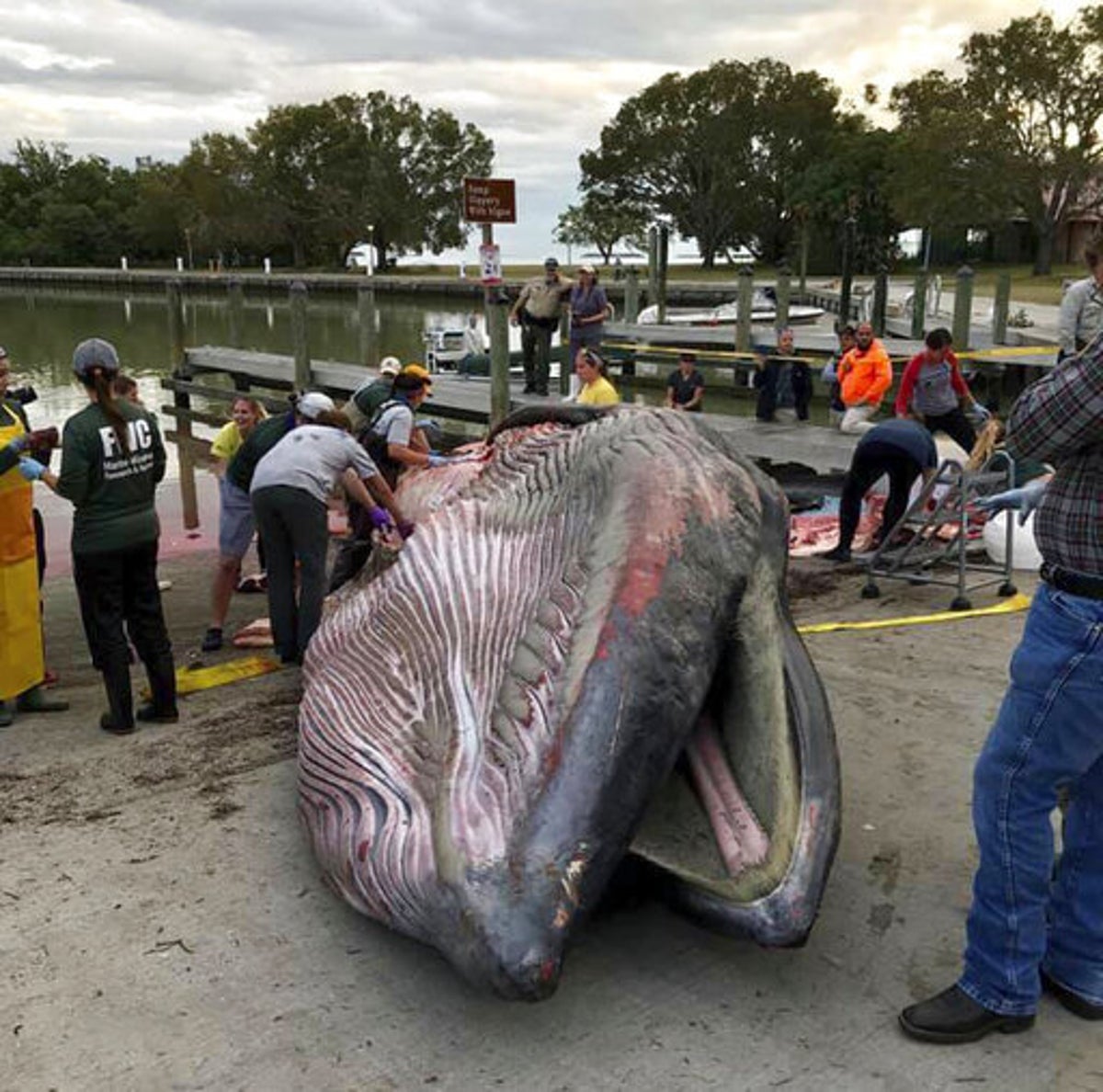
A new species of whale discovered last year in the Gulf of Mexico is already ‘on the edge of extinction’, experts warn.
Rice’s whale, also known as the Gulf of Mexico whale, was discovered in January 2021 but researchers believe there are only 50 left in existence.
Scientists have raised concerns that oil and gas drilling in the Gulf are to blame, by disrupting habitats in a “clear, existential threat to the whale’s survival and recovery.”
Rice’s whales can weigh up to 600,000 pounds, grow 42 feet long and live for up to 60 years
(NOAA )
A group of more than 100 scientists has now written an open letter to US President Joe Biden urging the administration to take action.
In the letter, marine scientists stated the Rice whale is ‘one of the most endangered marine mammal species on the planet.’
They highlight the Deepwater Horizon spill from 2010, that saw 134 million gallons of oil spill into the Gulf.
Collisions with vessels and chronic exposure to the noise from gas and oil exploration are also listed as threats to the whales’ survival.
A stranded whale was found with injuries consisting of blunt force trauma and another with spinal deformities due to collision injury.
The shipping routes taken interfere with the whales’ habitat along the northern Gulf, and the collision risk is likely to increase with new offshore oil and gas development.
In a plea to Mr Biden, the letter states: “ Your Administration is presently considering a new fiveyear program for offshore oil and gas leasing, as well as a new regulation and related permits and authorizations for seismic surveys in the Gulf of Mexico.
“Continuing with seismic exploration or drilling in the northern Gulf is antithetical to basic principles of conservation and would jeopardize the species’ survival and recovery
“The Gulf of Mexico whale is a unique part of the Gulf’s natural history and the only large whale species resident year-round in the waters of the United States.
“Yet few on-water measures have been established to protect it. Unless significant conservation actions are taken, the United States is likely to cause the first anthropogenic extinction of a great whale species.
“On this, the fiftieth anniversary year of the nation’s commitment to whales through the passage of the Marine Mammal Protection Act, we urge you to announce robust conservation measures to protect the Gulf of Mexico whale as well as funding for its recovery.”
Source link
